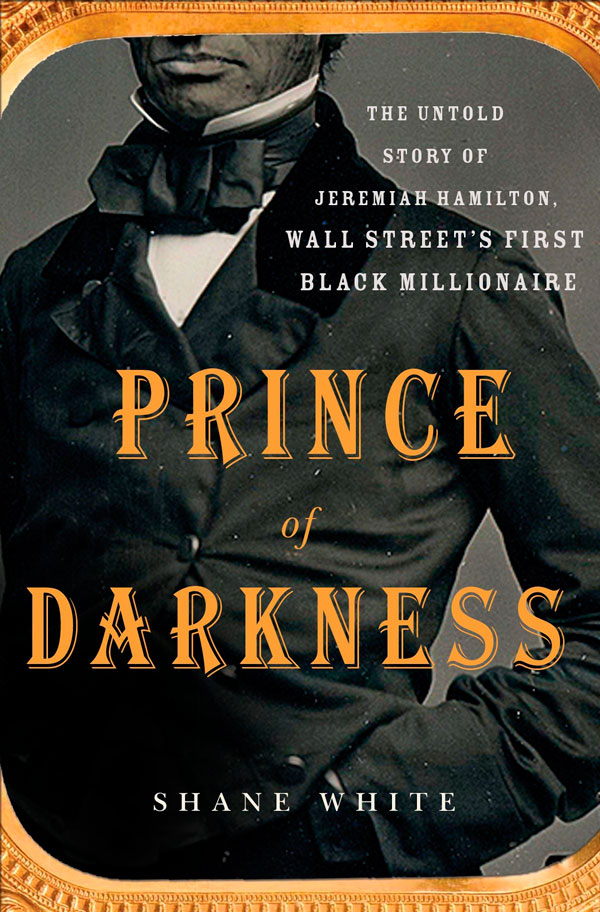“Prince of Darkness: The Untold Story of Jeremiah Hamilton, Wall Street’s First Black Millionaire” by Shane White
c.2015, Palgrave McMillan
$27.99 / $32.50 Canada
368 pages
Your numbers weren’t picked last night.
Ah, another worthless lottery ticket. No shopping spree or mortgage payoff for you. You’ll have to go to work and get your incredible wealth just like everybody else. Or, as you’ll read in “Prince of Darkness” by Shane White, you could become rich the old-fashioned way: through grift.
Though he showed up in New York City in the wake of scandal, nobody knew for sure where Jeremiah G. Hamilton had come from. Some sources said he was born in the Caribbean — which he admitted to, but he also claimed Richmond, Virginia, as his first home. Nobody knew, though, because Hamilton, an African American man, spent most of his adult life hiding facts and creating fiction.
Wherever he got his start, Hamilton launched himself early: in 1828, and “barely into his twenties,” he was involved in a counterfeit scam in Haiti that would’ve meant death, had he been caught. With the help of locals, however, he escaped and arrived in “Gotham,” but not without notice: newspapers of the day splashed the story, but Hamilton managed to keep mum on who’d helped him.
Almost immediately, he started borrowing money in a “frenetic, almost desperate” way, money he had no intention of paying back, which ultimately landed Hamilton in court: there were at least 10 lawsuits against him between 1830 and 1835, and there may’ve been more. Then came The Great Fire of 1835 in which “dozens of acres” of Manhattan were burned to the ground, along with the records of several businessmen who’d been convinced to invest with him. Hamilton denied the transactions, kept their $25,000, and gained the moniker of “Prince of Darkness.”
For the rest of his life — even after being forced to declare bankruptcy — Hamilton always landed on his feet, “shunned” other African Americans, and even invested in companies that overtly practiced racism. He died in 1875 in a “comfortable and elegant” residence he shared with his white wife and family.
So why are history books silent on Hamilton’s story? That’s a question author Shane White had, after he discovered Hamilton’s name and began digging. Could it have been due to the color of Hamilton’s skin?
It’s possible, White says, but in “Prince of Darkness,” he also indicates that the lack of documentation may’ve been because Hamilton rankled white financiers and investors, and didn’t appear to care that he’d done so. That insouciance, in light of the racism that Hamilton surely endured, would be an interesting story itself but White embellishes the tale with an abundance of history and extensive biographies of other influential people of Hamilton’s time. That’s good — to a point — but it occasionally can also make this book deadly dull. I found my mind wandering much more than I might’ve liked.
So is this book worth reading? I think so, but you may want to give it a rest now and then to regenerate yourself. Start it, take a break, repeat as necessary and you might find “Prince of Darkness” to be just the ticket.

























